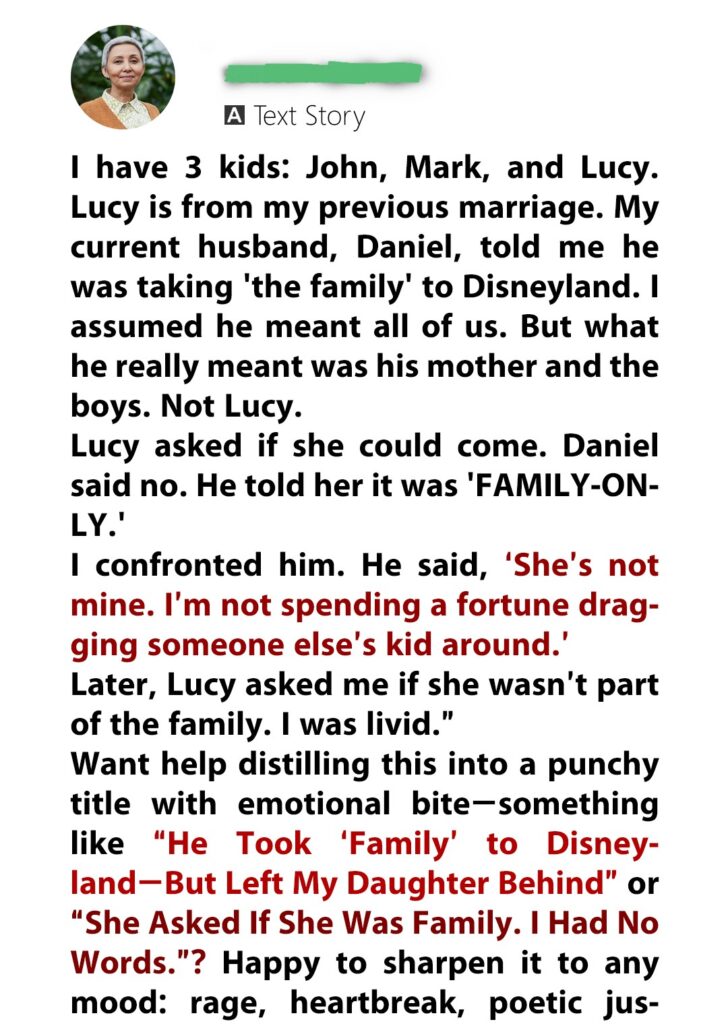When I married Daniel, I believed we were building a blended family rooted in love. I had Lucy from a previous marriage, and together Daniel and I had two sons, John and Mark. We raised them side by side, never imagining one would be treated as less than the others.
One morning, Daniel packed for a surprise trip to Disneyland. I was confused—he hadn’t mentioned any plans. “Just taking the family,” he said casually. But when Lucy asked if she was going too, he replied coldly, “No, it’s family-only.” Her smile faded instantly. “But I’m family,” she whispered. Daniel didn’t flinch. “I’m not spending a fortune on someone else’s kid.”
I was stunned. Lucy stood there, heartbroken, trying to understand why the man she called Dad suddenly saw her as an outsider. I confronted Daniel, furious. “She’s mine, which makes her yours too.” He shrugged. “Not legally.”
That moment shattered something in me. Lucy, who had always felt safe and loved, was now questioning her place in our home. I couldn’t let her carry that pain alone. So while Daniel took the boys, I planned a weekend just for her—spa day, shopping, her favorite restaurant. I wanted her to feel seen, cherished.
When Daniel returned, Lucy excitedly shared her weekend. But instead of joy, he responded with anger. “You made her feel special just because she was left out?” He even tried to take away the bear she made at Build-A-Bear.

His reaction revealed a deeper truth: this wasn’t about money or logistics. It was about exclusion, about drawing lines between “his” and “mine.” And I realized—love isn’t just about biology. It’s about showing up, choosing someone every day, especially when they’re vulnerable.
Lucy didn’t need a Disneyland trip. She needed to know she mattered. And I’ll never stop reminding her of that.
